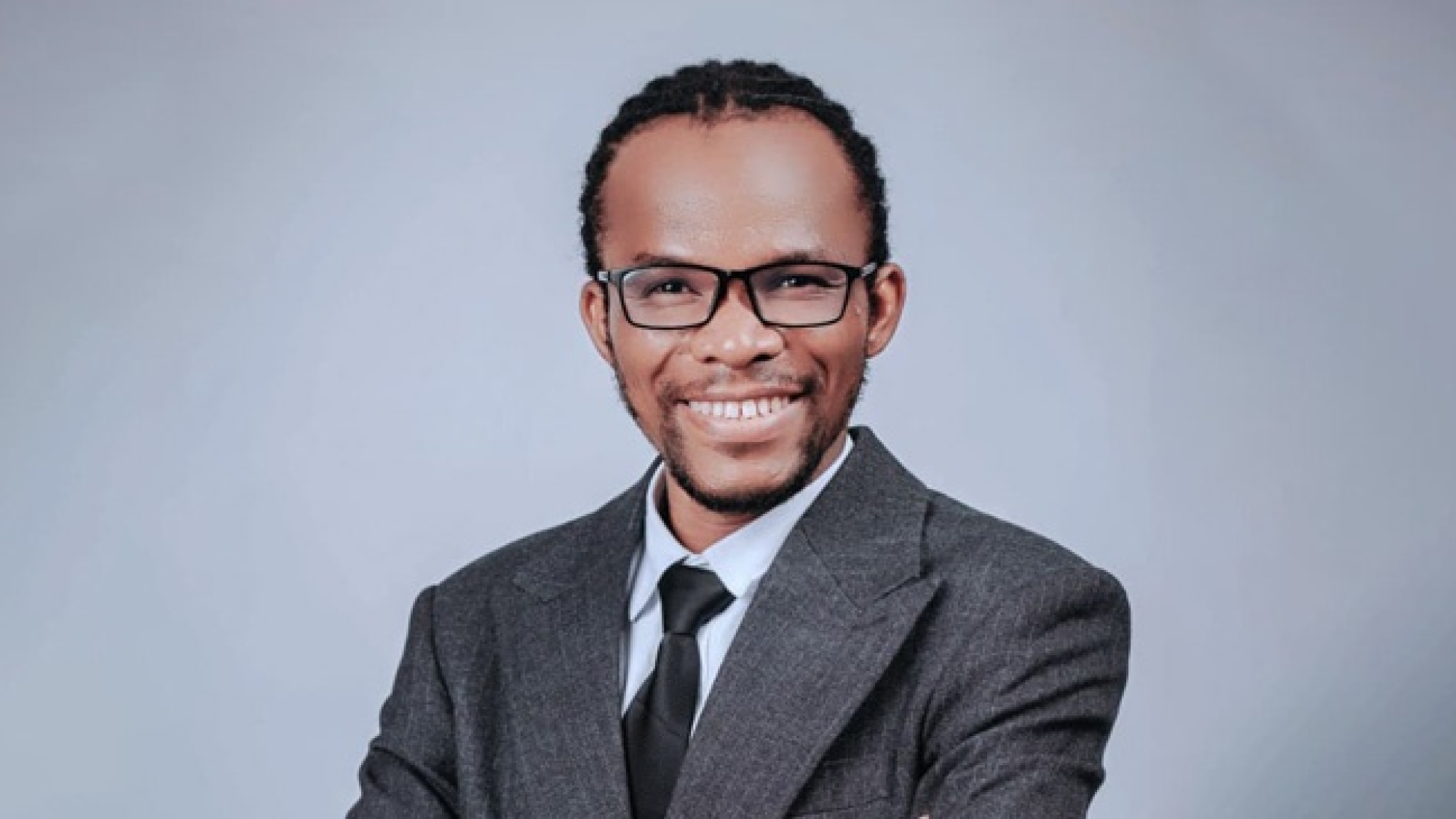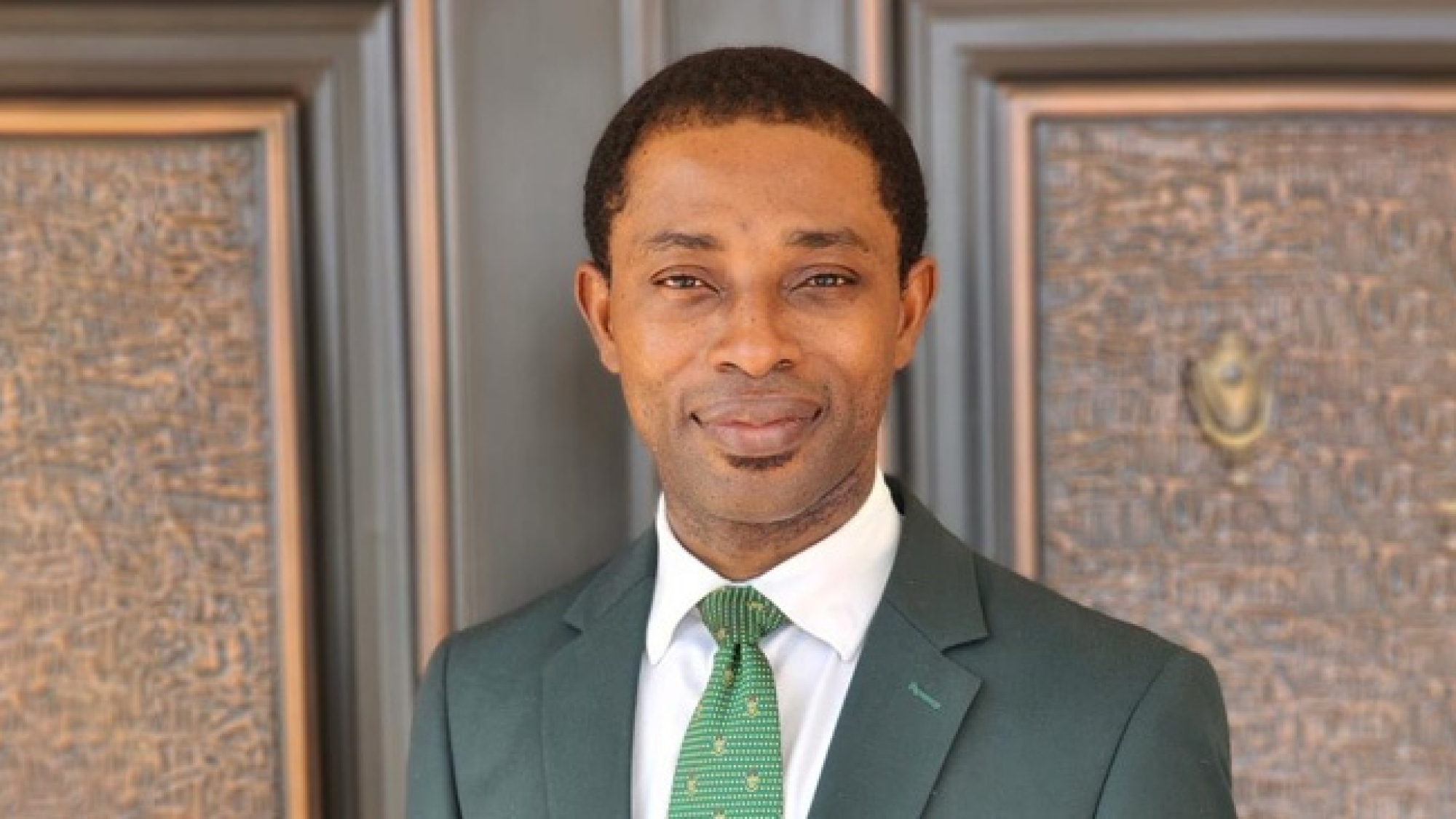Emmanuel Foster Asamoah (Pastor)
Coordinator, PCUPGs, Africa / HUM Pastor, Achimota Sector
INTRODUCTION
Illegal mining, locally known as galamsey, has evolved from shadowy, small-scale operations tucked away in forested regions into a bold and destructive force that now assaults Ghana’s environment, infrastructure, and communities in plain sight. What once occurred under the cover of darkness has moved into the daylight, marked by a startling lack of accountability and growing impunity. Across many parts of the country, rivers are choked with silt, farmlands have been swallowed by craters, and the very fabric of civic order seems to be unravelling.
One recent example captured national attention through a video aired on Adom FM’s Viral platform. The footage revealed a shocking scene: illegal miners dismantling a 3-kilometer stretch of the Takoradi-Akyem railway line, between Nsuta and Bonsawere. Accompanied by the unrelenting grind of machinery and the visible scarring of the land, the video documents a portion of the railway literally collapsing under the weight of greed and lawlessness (Adom Online, 2025a). What should have been protected public infrastructure is now reduced to ruins, as evidence of how deeply entrenched and normalized this illegal activity has become.
This article delves into the far-reaching consequences of this incident, not just in terms of infrastructural loss, but also its human cost, environmental degradation, public health hazards, and its deeper reflection of a moral and spiritual crisis afflicting the nation. Ultimately, it issues a compelling call to the Christian community: a call to rise with prophetic voice and practical intervention, to reclaim our national conscience, and to embody responsible stewardship over the land God has entrusted to us.
The Incident: Rails Under Siege
As said earlier, the viral video offers a harrowing glimpse into the scale of destruction inflicted upon the Takoradi-Akyem railway line, a vital stretch of national infrastructure now rendered almost unusable. It reveals a grim reality: railway sleepers have been forcefully removed, the railbed is hollowed out by galamsey pits, and the surrounding land has been eroded to the point of collapse. In some sections, the metal tracks no longer sit on firm ground but are instead left suspended over gaping voids, their foundations having been eaten away by illegal mining activity (Adom Online, 2025a). Sand and debris have overtaken large portions of the line, and the once-solid earth beneath it has either given way or been intentionally removed, leaving the railway structure dangerously unstable (Adom Online, 2025a).
The Ghana Railway Development Authority (GRDA) has issued a strong warning about these incursions. Their assessment is clear: such encroachments not only compromise the integrity of the railway but also risk complete structural misalignment and subsidence, which would make continued rail operations along this route physically and logistically impossible (Adom Online, 2025b). Trains depend on precision alignment, stable beds, and uninterrupted support; once that is undermined, every journey becomes a perilous gamble.
In his public statement, the acting CEO of the GRDA, Dr. Frederick Appoh, went a step further, describing the situation as a national security threat. He revealed that illegal miners who have been evicted often return under cover of darkness, emboldened by weak enforcement mechanisms and often armed, turning what began as an environmental concern into a growing security and safety crisis (Adom Online, 2025b). The implications here are sobering: parts of the nation’s rail network are under siege not just by illegal activity but by potentially hostile actors operating with near impunity.
According to the reporter, officials from the GRDA have estimated that it would cost the nation approximately USD 18 million to restore the damaged railway line. While various media outlets have echoed this projection, the figure has yet to be independently verified across all official sources (Adom Online, 2025c). Nonetheless, what remains indisputable is that the railway is currently non-functional, and without urgent intervention, Ghana risks losing a vital economic artery, one that underpins trade, transportation, and regional development.
Perhaps most troubling is that this railway line is not the only national asset under threat. The same news coverage also reports a disturbing testimony from a former Municipal Chief Executive (MCE), who revealed that galamsey activities have even extended to the degradation of ECG pylons: those vital structures that transmit electricity along the Asuoso to Côte d’Ivoire corridor. The situation reportedly became so dire that it required the intervention of military forces to prevent a total collapse of the region’s electrical supply infrastructure. While this claim warrants further verification from official broadcasts or government sources, it starkly illustrates the escalating audacity and reach of illegal mining operations in the country.
DAMNING EFFECTS ON THE CITIZENRY
1. Infrastructure and Economic Disruption
Railway lines are not just steel laid over sleepers; they are the lifeblood of economic mobility, facilitating the swift and cost-effective transport of goods, people, and services across regions. The deliberate destruction of a critical segment of the Takoradi-Akyem railway line threatens to disrupt an already fragile transport system in Ghana. This line serves not only urban populations but also connects agricultural and mining zones to ports and markets, forming a vital chain in the country’s logistics and export network.
With the railway out of operation, there is an immediate disruption of goods delivery, especially of bulky commodities such as farm produce and minerals, which rely heavily on rail for bulk movement. As a result, pressure shifts to road networks, many of which are already in poor condition. This leads to higher transportation costs, faster road deterioration, and increased vehicle maintenance expenses for businesses and consumers alike.
Furthermore, the loss of rail efficiency impacts businesses that depend on predictable and affordable logistics. Transport delays and higher costs eat into profit margins, shrink competitiveness, and discourage investment. To make matters worse, public funds that could be channelled into education, healthcare, or infrastructure development must now be diverted toward expensive emergency rail repairs.
The GRDA has warned that illegal mining near railway lines causes structural misalignment and subsidence, threatening not only current rail lines but also the feasibility of future rail development projects (Adom Online, 2025c). Without prompt and strategic intervention, the economic cost of galamsey-related rail damage will continue to mount.
2. Environmental Degradation
The destruction of the railway is only the surface symptom of a much deeper environmental emergency unleashed by galamsey. Across the affected regions, the landscape bears scars that may take decades to heal.
One of the most visible consequences is land degradation and soil erosion. Large, open mining pits have replaced once-fertile farmland, while topsoil is washed away during rains, leaving barren, unproductive land behind (Stacy, 2025). This disrupts both agricultural productivity and natural vegetation cycles.
Moreover, water contamination is rampant. Illegal mining operations often discharge untreated wastewater laced with chemicals directly into streams and rivers. These activities increase turbidity (cloudiness) in water and introduce toxic substances like mercury and arsenic, endangering both aquatic life and human health (Ayambire et al., 2024). Recent studies have shown significantly elevated turbidity levels in rivers adjacent to galamsey zones in Ghana, with serious implications for downstream communities that rely on these sources for drinking, cooking, and irrigation (Annan, 2024; Anoyege and Alatinga, 2024).
The environmental toll extends to deforestation and biodiversity loss. Forested areas are cleared to access gold deposits, displacing animal habitats and permanently altering ecosystems. Even worse, many mining sites are abandoned without any attempt at land reclamation, leaving hazardous, unmarked pits that endanger humans and wildlife (Annan, 2024).
Finally, toxic exposure from chemicals used in ore processing, such as mercury and cyanide, poses a long-term health and environmental risk. These chemicals persist in soils and waterways, affecting plant growth, contaminating food chains, and bioaccumulating in aquatic life (Emmanuel et al., 2018). Such environmental degradation erodes vital ecosystem services, including flood regulation, soil fertility, and carbon storage—services that, once lost, are costly and difficult to restore.
3. Public Health Hazards
The environmental degradation caused by galamsey directly translates into serious public health threats. Communities living near illegal mining sites bear the brunt of this burden, with vulnerable groups, such as children, pregnant women, and the elderly, facing heightened risks.
Exposure to chemical toxicity, particularly from mercury and other heavy metals, has been linked to numerous health issues, including neurological damage, kidney failure, respiratory complications, and birth defects (Emmanuel et al., 2018; Anoyege and Alatinga, 2024). In many galamsey zones, mercury is used to extract gold from ore, and residues are carelessly dumped into water sources, where they enter the food chain through fish and drinking water.
Beyond chemical exposure, waterborne diseases are prevalent. Polluted rivers and streams become breeding grounds for bacteria and parasites, increasing incidences of cholera, diarrhoea, typhoid, and skin infections in nearby communities. In areas where piped water is unavailable, residents are forced to use contaminated rivers, placing their health at continuous risk.
The abandoned pits and stagnant water around illegal mining zones are ideal breeding sites for mosquitoes, contributing to the resurgence of malaria and other vector-borne illnesses such as dengue fever (Annan, 2024; Anoyege and Alatinga, 2024). This is particularly concerning given that Ghana already grapples with high malaria incidence in rural areas.
Tragically, the dangers extend to direct physical harm. Galamsey sites are frequently the scenes of accidental injuries and fatalities, especially due to tunnel collapses. One of the most notable incidents was the Dompoase mine collapse in 2009, which claimed at least 18 lives, mostly women and children working at the site (BBC News, 2009). These tragic events highlight the urgent need for regulation, oversight, and enforcement to prevent further loss of life.
4. Social, Economic, and Moral Toll
The repercussions of galamsey are not limited to physical and environmental degradation; they extend deeply into the social fabric and moral conscience of the nation.
Firstly, livelihood losses are rampant. Farmers lose access to arable land; fishermen can no longer rely on clean rivers and lakes for their catch; and youths, seduced by the promise of quick money, are abandoning school to engage in mining. This has created a disrupted generational future, where sustainable vocations are replaced by short-term risk and instability.
The result is a deepening cycle of poverty and inequality. Communities most affected by galamsey are often left without basic amenities, while the wealth extracted from their land benefits only a few. As environmental degradation worsens, economic disparity widens; those with no access to capital or alternative employment remain trapped in a destructive cycle.
Moreover, galamsey has flourished in environments of weak governance, where corruption and impunity are common. It is no secret that some illegal operations continue due to protection from local or political actors. In such settings, laws are flouted, and accountability is elusive. This fosters a dangerous culture where crime pays, and respect for the rule of law diminishes.
As public infrastructure collapses and illegal activities go unpunished, trust in institutions erodes. Citizens begin to question the legitimacy and capacity of the government to act in the public interest. This loss of confidence can have long-lasting effects on national cohesion, electoral participation, and civic responsibility.
Finally, the economic cost to the state is staggering. Illegal mining undermines tax collection, royalty payments, and legitimate exports. A recent report by the World Finance Watch (WFW) during the INDABA 2025 Conference emphasised that illegal mining deprives Ghana of hundreds of millions in revenue annually, funds that could otherwise be used to drive development across sectors like education, agriculture, and health (Watson Farley & William and Kimathi and Partners, 2025).
A CHRISTIAN RESPONSE: THEOLOGICAL FOUNDATION & ACTION
The crisis of illegal mining in Ghana is not solely an economic or environmental matter; it is fundamentally a spiritual crisis. It speaks to our broken relationship with creation, with each other, and with the God who entrusted us with stewardship over the earth. For Christians, this is not a time to remain silent or detached. The Church must move beyond the sanctuary walls to respond with conviction, clarity, and compassion. Galamsey is not merely a crime, for it is a sin against creation, a violation of justice, and an affront to the dignity of our neighbours and the sovereignty of God.
A. Biblical and Theological Foundations for Stewardship
1. Creation Belongs to God
Psalm 24:1 declares, “The earth is the Lord’s, and everything in it.” This verse grounds the Christian understanding that the natural world is not a possession to be plundered but a sacred trust given by God. Every tree, river, mountain, and mineral deposit belongs first to God, not to individuals or companies. When we exploit nature recklessly, we violate the ownership of the Creator Himself.
2. Divine Commission to Care
In Genesis 2:15, humanity is placed in the Garden of Eden “to work it and take care of it.” This is more than a job description; it is a divine mandate of stewardship. Human beings are called not to dominate and destroy, but to nurture, preserve, and sustain creation. Galamsey contradicts this commission, turning what should be a source of shared blessing into a site of degradation and despair.
3. Righteousness, Justice, and Protection of the Vulnerable
The call to justice is at the heart of Christian faith. The prophet Micah reminds believers that God requires us “to act justly, to love mercy, and to walk humbly with [our] God” (Micah 6:8). Illegal mining violates all three: it promotes injustice, deepens environmental harm, and silences the cries of the poor. It is often the vulnerable, such as rural farmers, fisherfolk, and children, who suffer most from poisoned water, eroded lands, and economic displacement. To ignore this is to stand against both the gospel and the God of justice.
In light of these scriptures, galamsey must be understood as sin, not just a breach of civil law, but a spiritual failure that demands repentance and redemptive action.
B. Christian Paths of Response
1. Prophetic Witness and Public Voice
The Church must rise as a prophetic voice in the nation, boldly speaking out against environmental injustice and calling out sin, even when it involves the powerful. Pulpits should not remain silent while communities are poisoned and ecosystems destroyed. Pastors, bishops, and lay leaders must use every platform, including sermons, radio, television, and social media, to proclaim truth, challenge corruption, and reawaken the nation’s moral conscience.
2. Education and Empowerment
Beyond advocacy, the Church can play a transformative role in community education. In mining-prone regions, churches can hold workshops and seminars to raise awareness about the dangers of galamsey. They can introduce and promote sustainable agricultural practices, eco-friendly livelihoods, and skills training for youth. By equipping people with alternatives, the Church can help break the cycle of environmental destruction and economic desperation.
3. Integrity in Christian Leadership
The credibility of the Church is tied to the character of its leaders. Christians who hold positions in government, traditional councils, security services, and NGOs must lead by example. They must reject bribes, uphold the law, and champion transparency. Integrity must move from being preached in church to being practiced in public service. The nation needs leaders whose decisions are shaped by fear of God and love for neighbour, not personal gain.
4. Restoration and Healing Projects
Christian communities can take the lead in healing the land. Initiatives like tree planting, waterway cleanup, soil restoration, and waste management can be organised at the congregational or denominational level. Partnering with environmental NGOs, schools, and local authorities, the Church can serve as a beacon of practical stewardship. Such actions demonstrate that faith is not only about personal salvation but also about communal and ecological healing.
5. Prayer Coupled with Action
Prayer remains foundational to the Christian life. But prayer in times like these must move beyond private devotion. The Church must gather in intercession for the land, the leaders, and the hearts of those engaged in environmental destruction. Yet, prayer must fuel action. As the apostle James says, “faith by itself, if it is not accompanied by action, is dead” (James 2:17). The Church must ask God not only for mercy but also for courage, wisdom, and strategy to be agents of transformation.
In all these ways, the Christian response to galamsey must be holistic, courageous, and consistent. Silence is complicity. But through prophetic witness, moral integrity, and loving action, the Church can help lead Ghana from environmental ruin to spiritual and ecological restoration.
CONCLUSION
The destruction of the Nsuta-Bonsawere railway is not an isolated event; it is a microcosm of a national crisis of environment, health, dignity, and governance. The damage is physical, but the deeper injury is moral and spiritual.
Yet in this darkness, hope remains. If citizens and Christian communities rise in integrity, mobilise for justice, restore what is broken, and reclaim stewardship, Ghana can heal. The question posed by the viral video is not just “What is happening to our beloved nation?” but “What will we do about it?”
May we choose restoration over destruction, responsibility over indifference, and justice, faith, and action over silence.
REFERENCES
Adom Online. (2025a). Galamsey rips through Nsuta rail line; 3km Takoradi–Akyem line destroyed. Retrieved from https://www.adomonline.com/galamsey-rips-through-nsuta-rail-line-3km-takoradi-akyem-line-destroyed/ Adomonline.com
Adom Online. (2025b). Railways under siege; galamseyers destroying metal tracks – GRDA. Retrieved from https://www.adomonline.com/railways-under-siege-galamseyers-destroying-metal-tracks-grda/ Adomonline.com
Adom Online. (2025c). Galamsey threat to rail infrastructure a national security concern – Dr. Appoh warns. Retrieved from https://www.adomonline.com/galamsey-threat-to-rail-infrastructure-a-national-security-concern-dr-appoh-warns/ Adomonline.com
Annan, S.T. (2024). “The Ban on Illegal Mining in Ghana: Environmental and (“Social”) Impacts.” (2021). Journal of Geoscience and Environment Protection, 12(3). Retrieved from 10.4236/gep.2024.123009.
Anoyege, R., and Alatinga, K. A. (2024). “Impacts of illegal mining activities on water quality for human health.” J Water Health, 22 (10): 1886-1898. Retrieved from https://doi.org/10.2166/wh.2024.196.
Ayambire, RA., Nunbogu, AM., Cobbinah, Patrick BM., Kansanga, M., Pittman, J., Dogoli, MA. (2024). “Constructing alternative interpretation: Embeddedness of illegality in small-scale mining.” The Extractive Industries and Society, 17. Retrieved from https://doi.org/10.1016/j.exis.2024.101430.
BBC News (2009). Women die in Ghana mine collapse. Retrieved from http://news.bbc.co.uk/2/hi/africa/8356343.stm.
Emmanuel, A. Y., et al. (2018). “Review of Environmental and Health Impacts of Mining in Ghana.” Environmental Health Perspectives, 8(17), 43-59.
Malone M, Malone-Rowe C (2014), “Transnational Organized Crime in Latin America.” In Transnational Organized Crime: An Overview from Six Continents, 2455. Teller Road, Thousand Oaks California, 91320 United States: SAGE Publications, Inc., pp. 57-74, doi:10.4135/9781483349091.n4, ISBN 978-1-4522-9007-2.
Stacy, P. (2025). “Institutional coalescence and illegal small scale gold mining in Ghana.” World Development. Retrieved from https://doi.org/10.1016/j.worlddev.2024.106808.
Watson Farley & William and Kimathi and Partners (2025). Indaba 2025: How can Ghana combat illegal mining? WFW. Retrieved from https://www.wfw.com/articles/indaba-2025-how-can-ghana-combat-illegal-mining/?utm_source=chatgpt.com.














